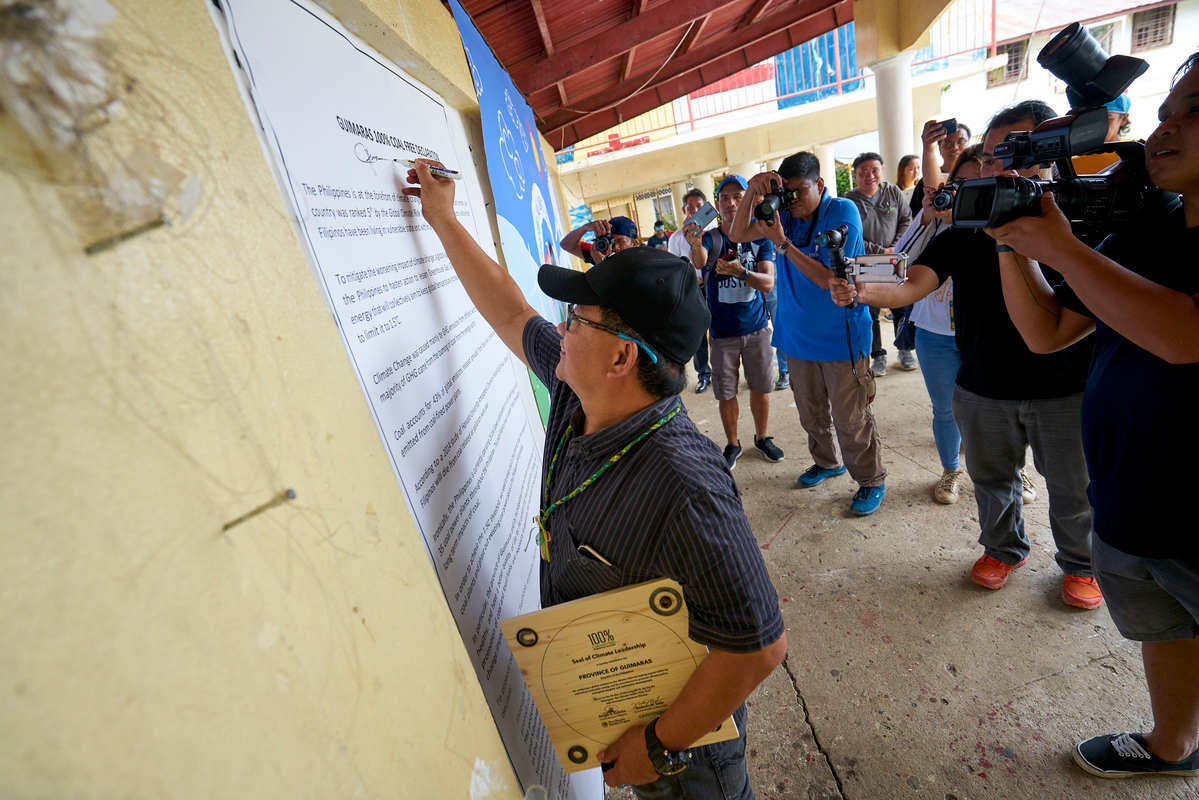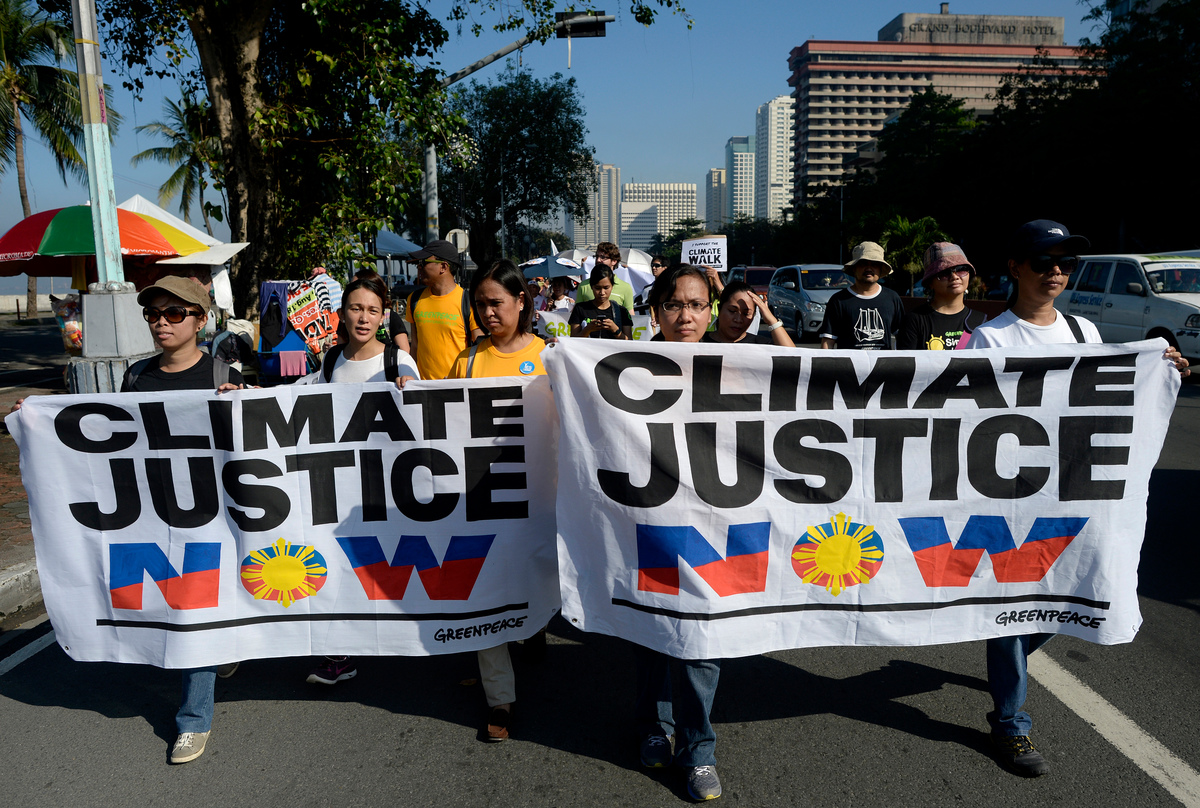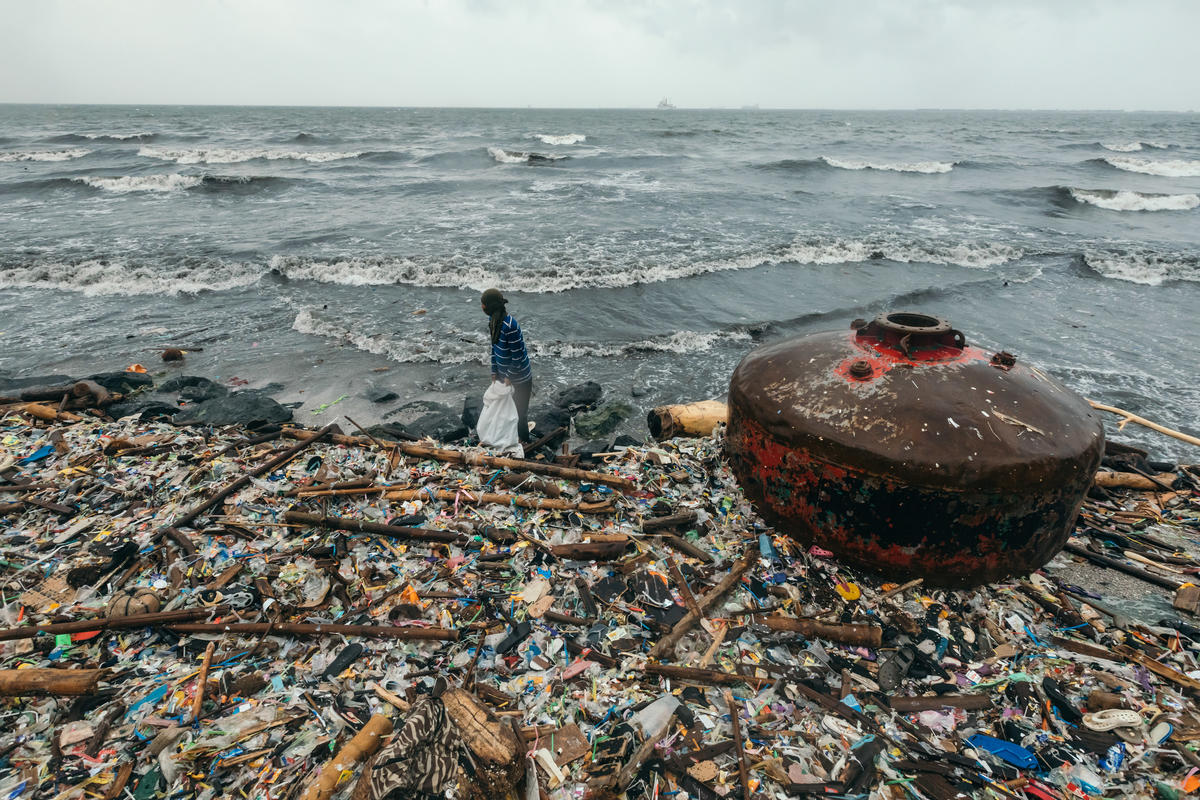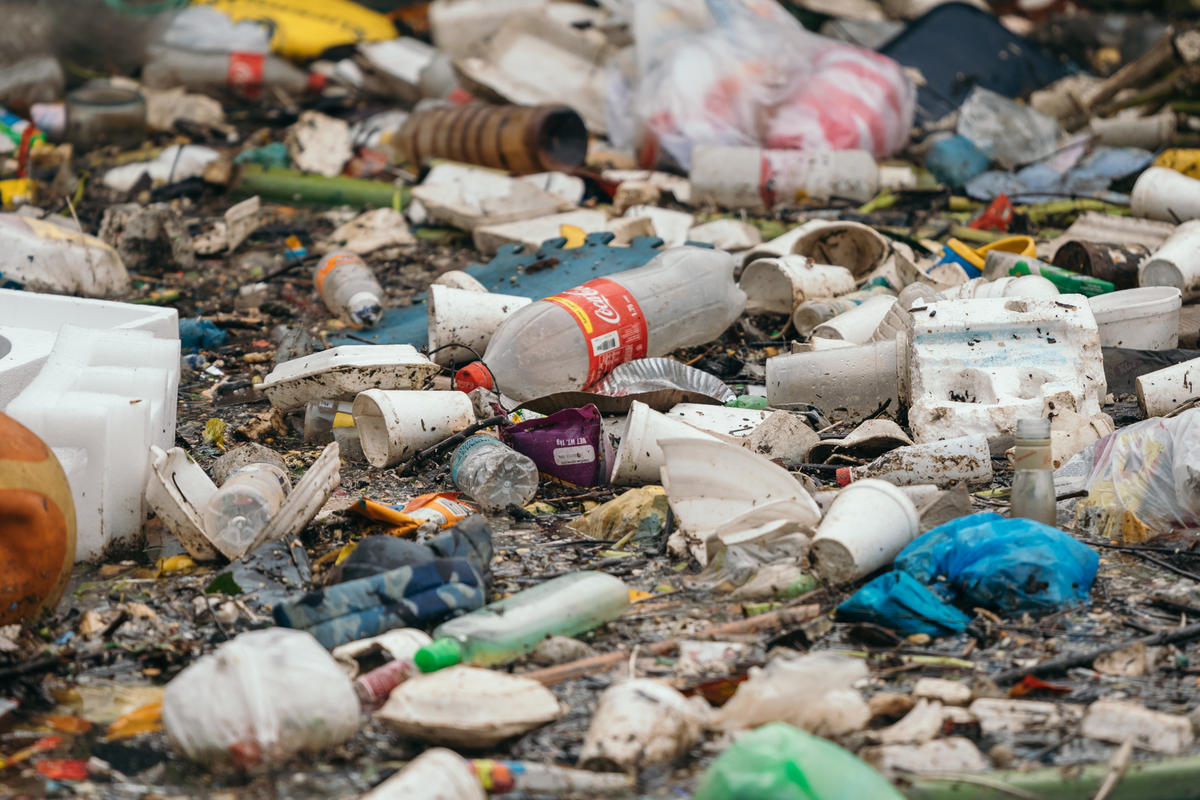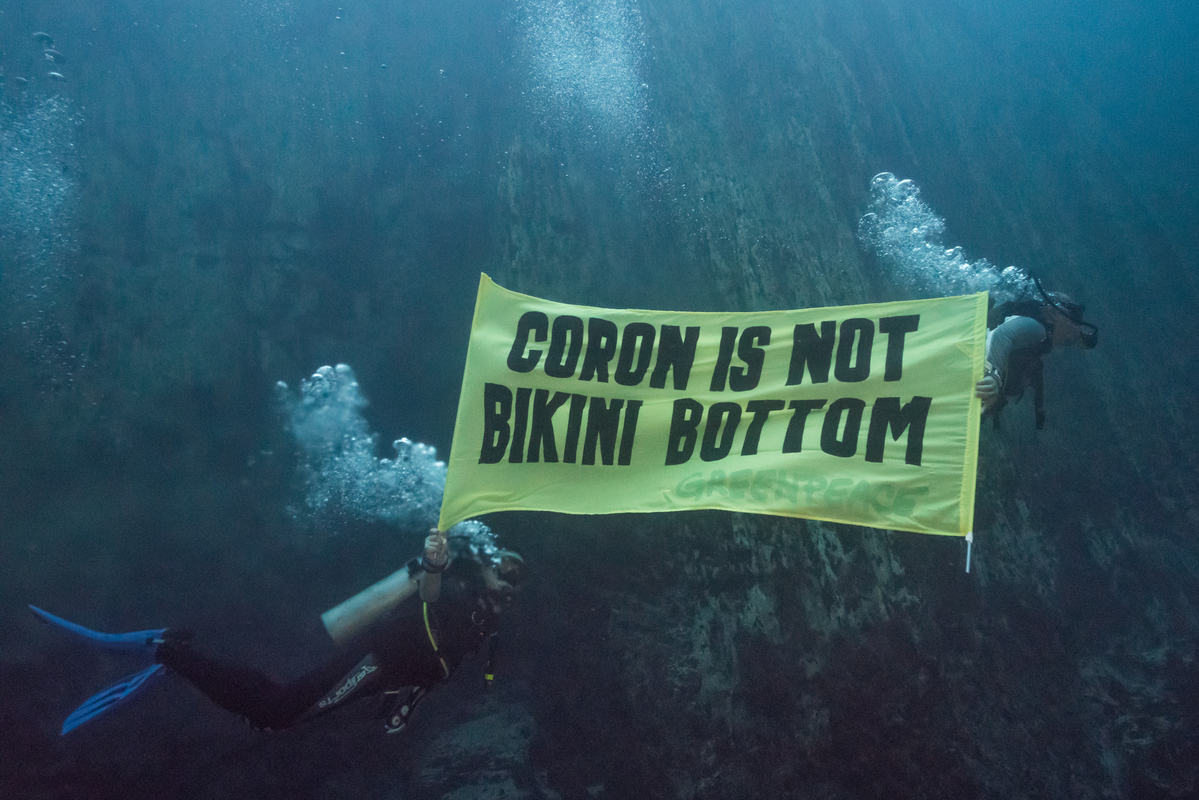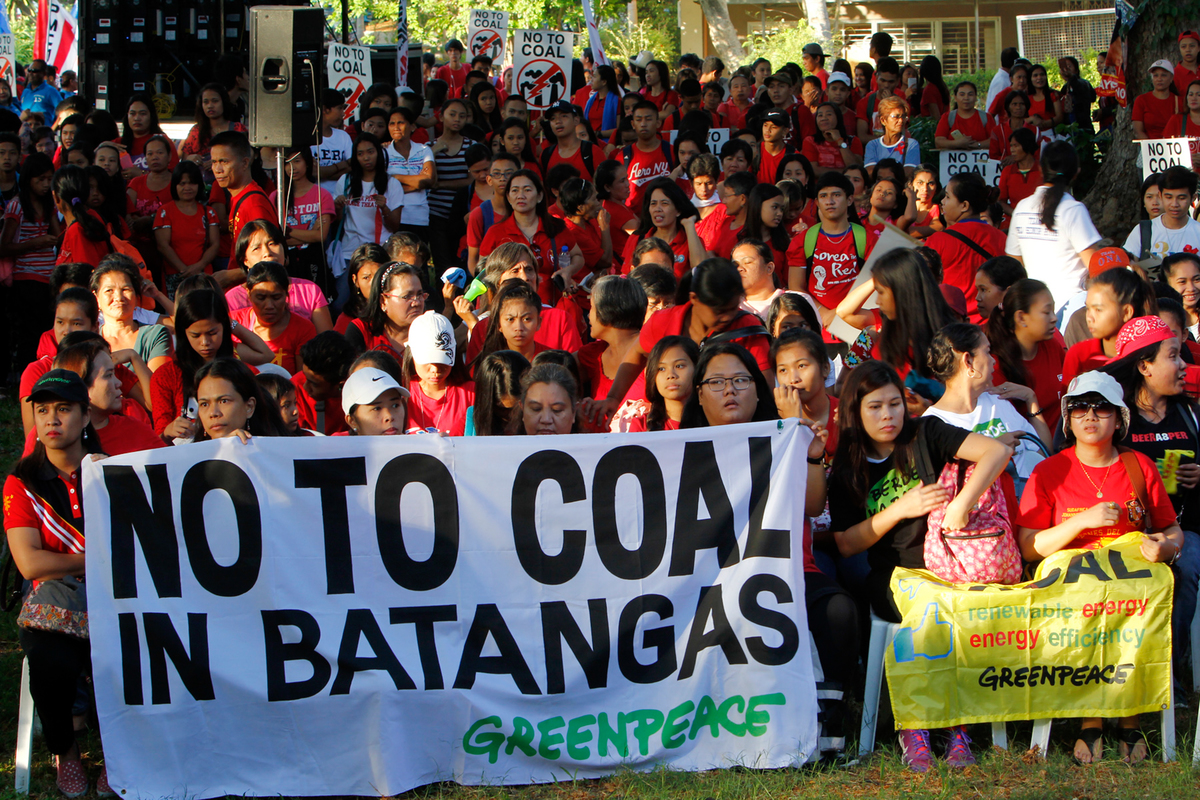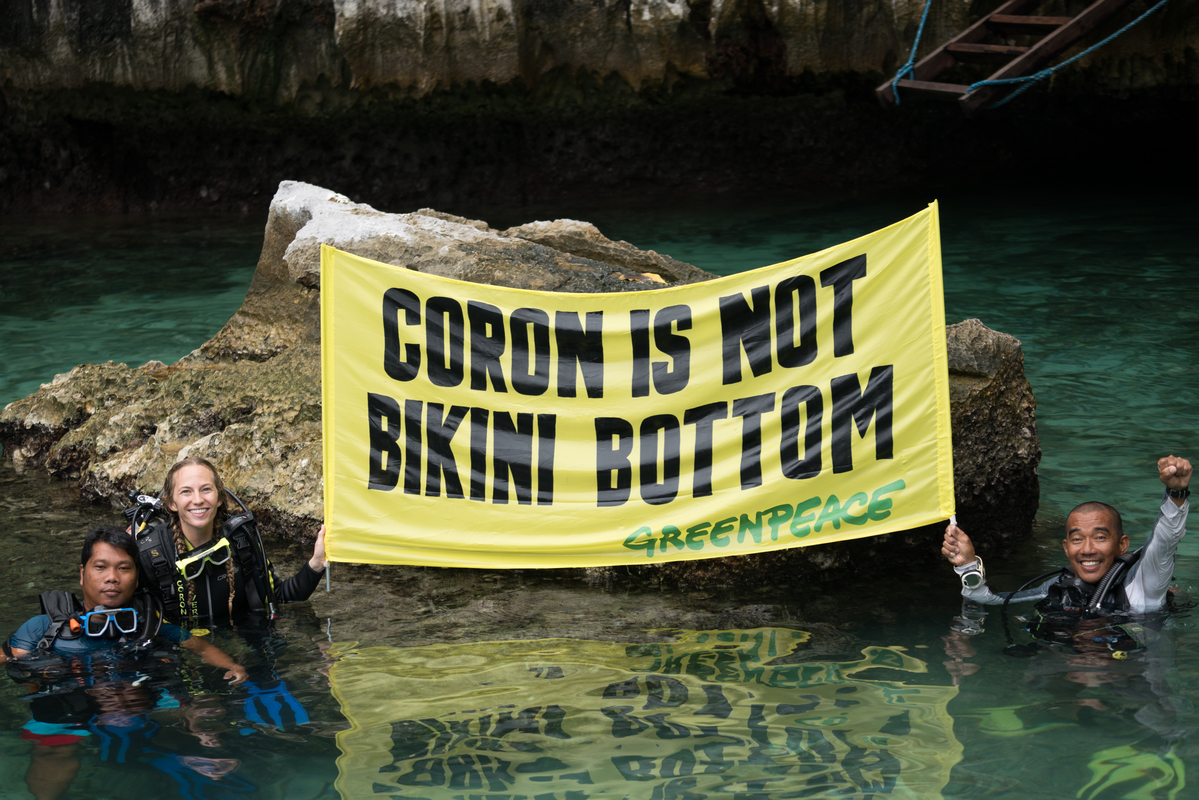All articles
-
Guimaras is first coal-free province in Visayas
Guimaras Governor Samuel T. Gumarin and the municipal mayors of the island today declared Guimaras as the first coal-free province in Visayas.
-
‘People and planet, not profit’
Greenpeace activists demand Shell show up at climate change and human rights inquiry
-
ExxonMobil, Shell among companies told to attend human rights investigation over climate change
The Commission on Human Rights in the Philippines have called on 47 carbon producers to attend a preliminary meeting in its investigation into their corporate responsibility for climate-related human rights abuses
-
Nestlé, Unilever, P&G among worst offenders for plastic pollution in Philippines in beach audit
Nestlé, Unilever, and Indonesian company PT Torabika Mayora are the top three contributors of plastic waste discovered in the Manila Bay area
-
Greenpeace Statement on the 45th anniversary of the Declaration of Martial Law
On the 45th anniversary of the Declaration of Martial Law, 21 September 2017, Greenpeace Philippines released a statement on developing stories regarding the possibility of President Rodrigo Duterte declaring Martial Law nationwide, as well as regarding the proposal to slash the budget of the Commission on Human Rights (CHR) to P1000 for 2018.
-
Greenpeace, PRRC track plastic pollution in Pasig River, kicks off clean-up project along Manila Bay
Greenpeace Philippines and the Pasig River Rehabilitation Commission (PRRC) today hosted a boat tour showing the magnitude and trajectory of plastic waste from tributary San Juan River to the Pasig River’s mouth.
-
Environment groups relieved over Viacom break up with Coral World Park on planned undersea theme park in Coron
Environment groups that had come together in Palawan to oppose the planned Nickelodeon-branded undersea theme park in Coron scored a victory with the announcement by Viacom International Media Networks (VIMN) on Tuesday, August 22, 2017, that it will discontinue its partnership with Coral World Park (CWP) for the planned theme park.
-
Greenpeace statement on the proposed coal plant in Batangas City
The Department of Environment and Natural Resources (DENR) held a public hearing this week on the proposed coal-fired power plant project of Merbau Corporation, a subsidiary of JG Summit Holdings, Inc.
-
IPs, Palawan groups intensify opposition to planned Nickelodeon undersea attraction
Indigenous peoples from Coron and nearby islands, together with local groups in the province, are rejecting the proposed Nickelodeon underwater theme park amid concerns over the project’s environmental and cultural impact in the municipality.
-
Environmental groups raise alarm on Nickelodeon threat to sustainability of Palawan
Environmental groups, together with members of the academe and representatives from Palawan, called for intensified efforts to safeguard the sustainability and environmental viability of Palawan in light of apparent lobby efforts to push through with plans for a Nickelodeon theme park in Coron

